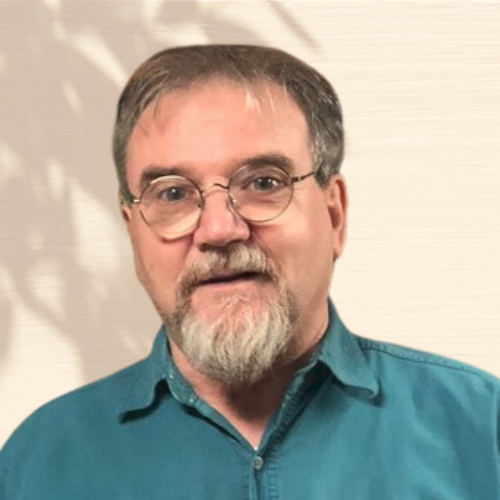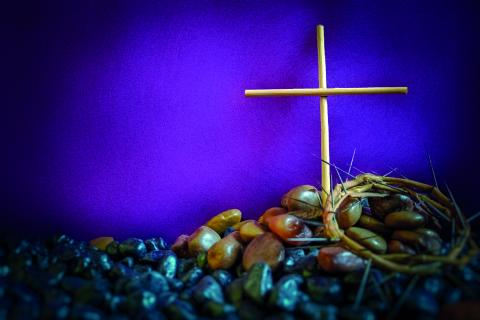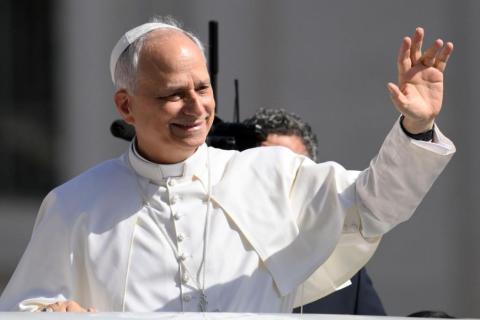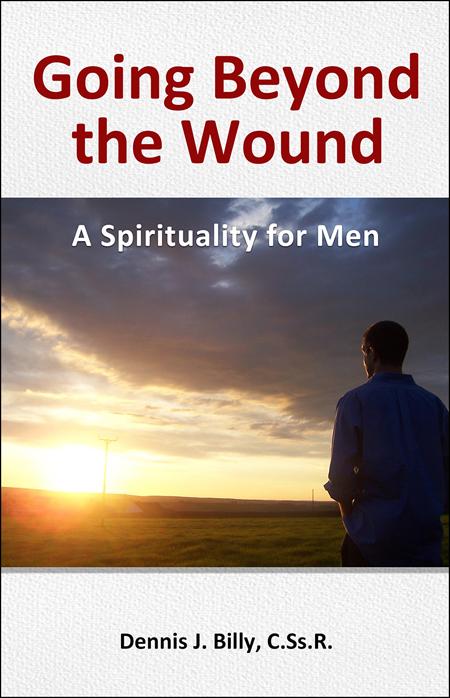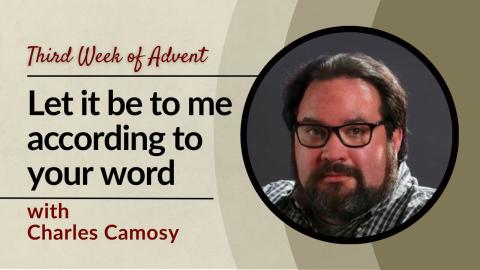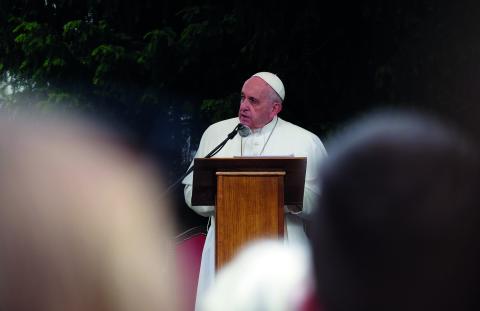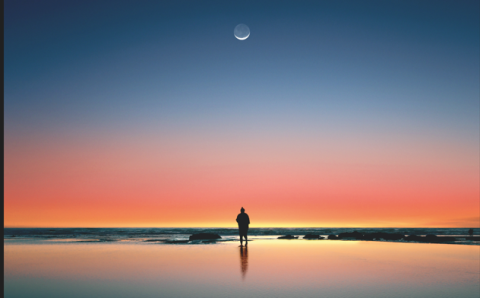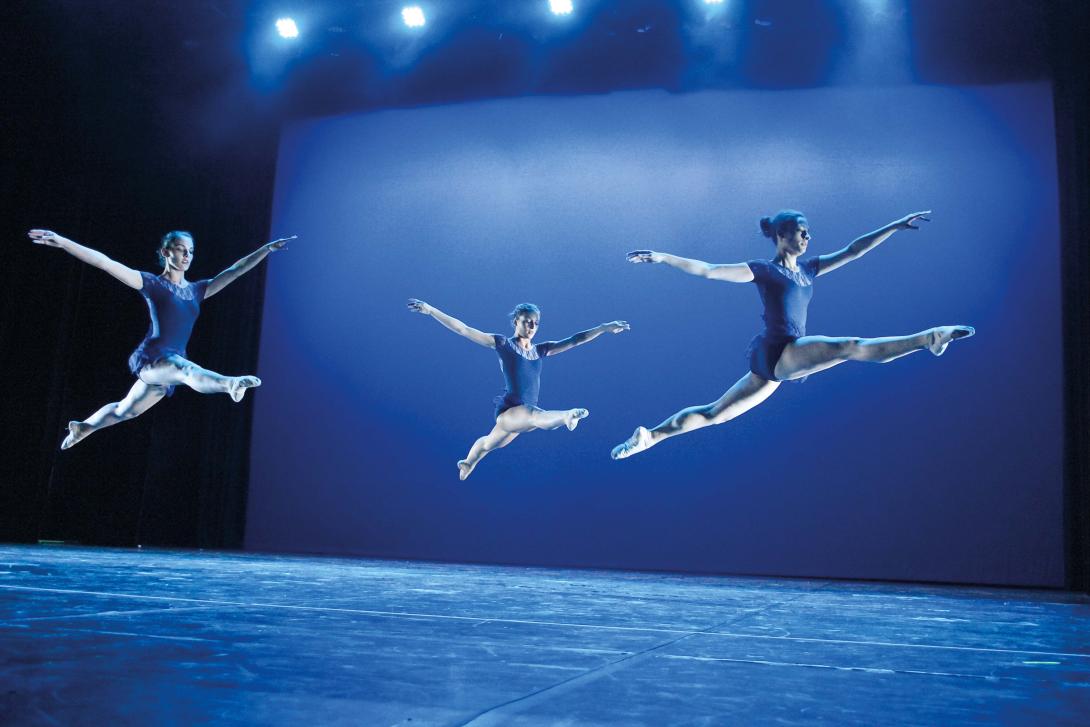
© Courtesy Citta Nuova
Most human beings know by experience that rising above the daily round of temporal occupations is not so easy to do. But when we do, it surely helps us to walk more graciously upon this troubled earth that we share with billions of fellow sufferers. In his wise book of mystical stories, Trappist friend Theophane the Monk relays Tales of a Magic Monastery and suggests that “the problem is heaviness.” If so, what keeps us from being lighter? What prevents us from being as St. Augustine would have us — “Alleluias from head to foot”? Most of us are pretty familiar with what weighs us down. But what must we learn of the antidote to despair? Perhaps we might look at our challenges, both personal and social, as begging a new asking of a perennially relevant biblical question: “From whence shall come my (our) help?” It is, it seems, an inquiry of ever-increasing importance. Dorothy Day, of the Catholic Worker, who knew moral and emotional gravitas like the back of her hand, would appropriate the words of the Romantic visionary John Ruskin. She would remind herself ever to entertain “the duty of delight.” We might learn from her play/pray book and realize that while sometimes active love can be dutiful, it can also be delightful. Day, quoted in Sojourners Magazine, asserts, “You have to imbibe faith, hope, and love; otherwise, you get too discouraged.” This lesson is sage advice indeed! I have long worked for and with the poor, sick and mentally ill. I have known defeat in squaring off with seemingly insurmountable odds in the struggle to counter poverty and illness effectively. And yet, I have discovered that, as Albert Camus once put it, “In the depth of winter, I finally learned that within me there lay an invincible summer.” I have found unearned grace at work in interactions with my fellow wounded who have also ministered to me. Seeing such grace at work in us has taught me that Christ makes use of even our wanting personalities, poverties and weaknesses as springboards for sharing his undaunted, inexhaustible love for all of us living in this hurt world.
In the frontispiece of her autobiography, The Long Loneliness, Dorothy Day echoes English nun Mary Ward, who tells, “He who lays on the burden also carries it.” My spiritual mentor, Irish American priest Bernard E. Gilgun, would remind us once young Catholic Workers at the Mustard Seed House of Hospitality that “Those who see the work of God, see God working.” Indeed, doing the works of mercy has been a personal bulwark against despair and a source of profound sanity. The corporal and spiritual works of mercy are the building blocks of a culture that is an alternative to hopelessness. This labor of love is pursuing the things that make for peace that Jesus, crying over Jerusalem, lamented we did not know. We need to learn and exercise this knowledge. According to the Christocentric Russian philosopher Nikolai Berdyaev, “Human creativeness in the world is, as it were, the eighth day of creation.” To labor in concert with God in the building of the world is the noblest vocation. We are invited to both imitate Christ, who commands us to “Love one another as he loved us” and to “Be still and know that I am God.” We are to be active and contemplative, whereby hope is a matter of faith in the power of divine and human love working together. Faith is hope in love. Jim Wallis, the long-time leader of the Sojourners Fellowship, taught that “Hope unbelieved is always considered nonsense. But hope believed is history in the process of being changed.” It is not easy to be delighted or believe. Thus, a sense of being duty-bound to these can be a goad to the actual reception of lightness of heart and sturdier faith in hope as a gift that tells, “Sin abounds, but grace superabounds.” Emily Dickinson was indeed insightful when she poetically proclaimed:
“Hope is the thing with feathers That perches in the soul And sings the tune without the words And never stops — at all.” Alleluia!


